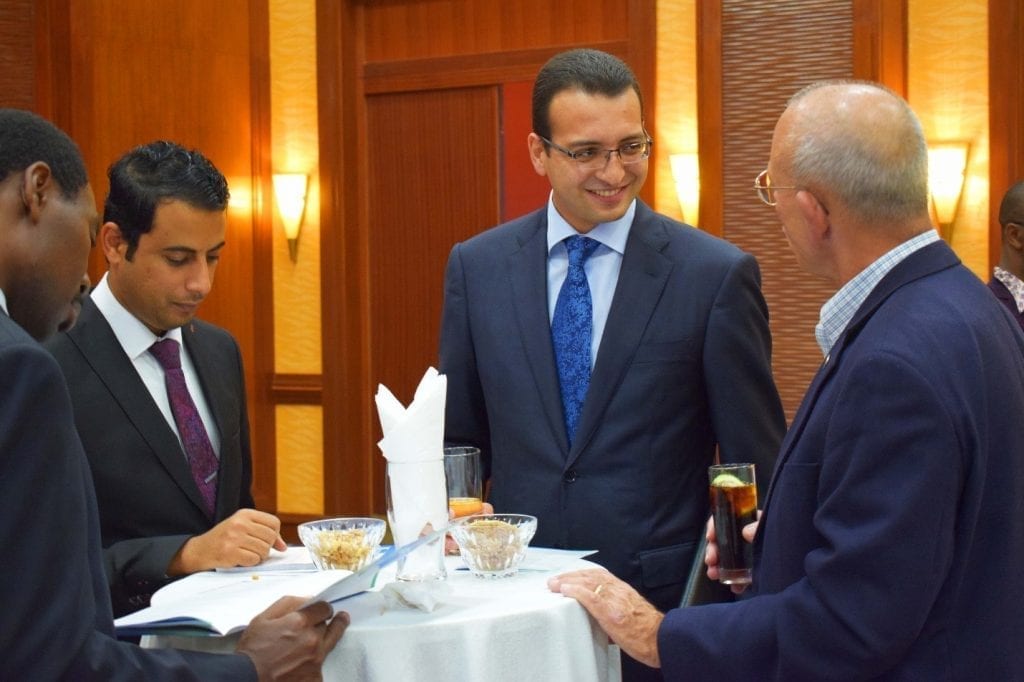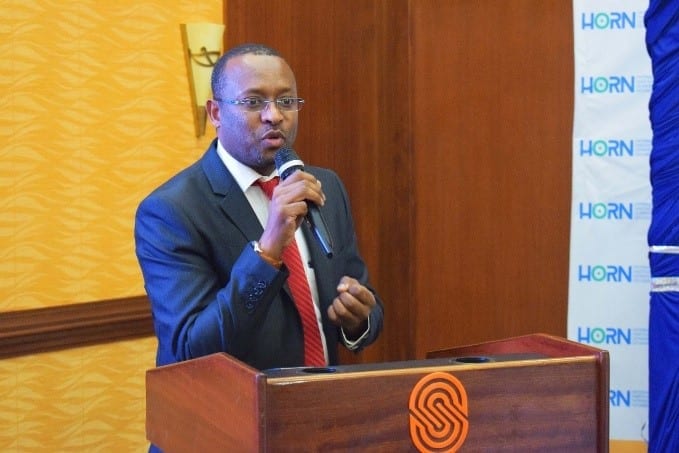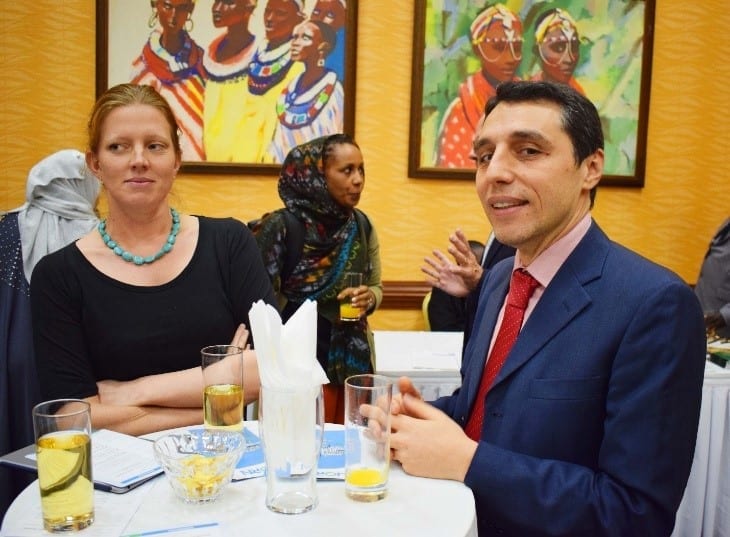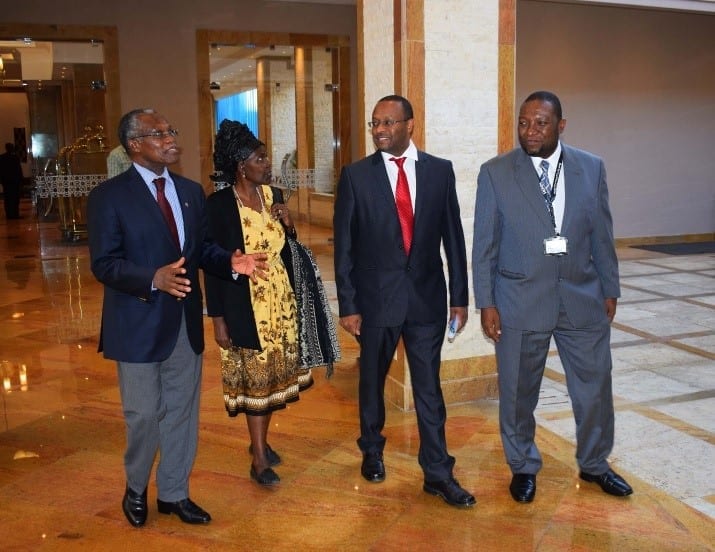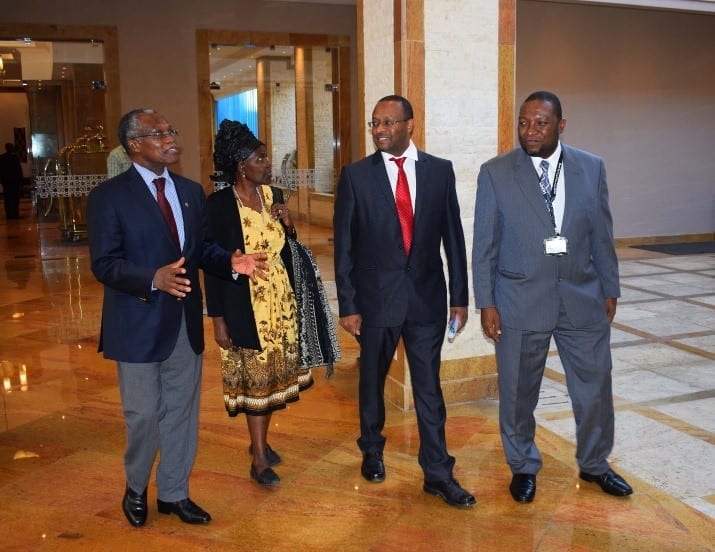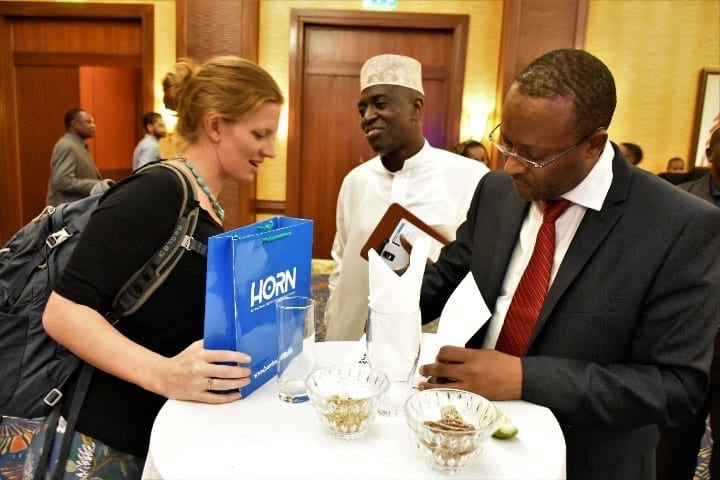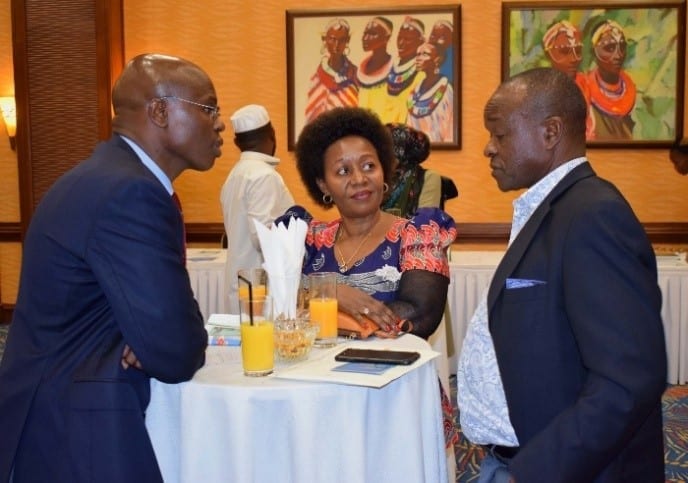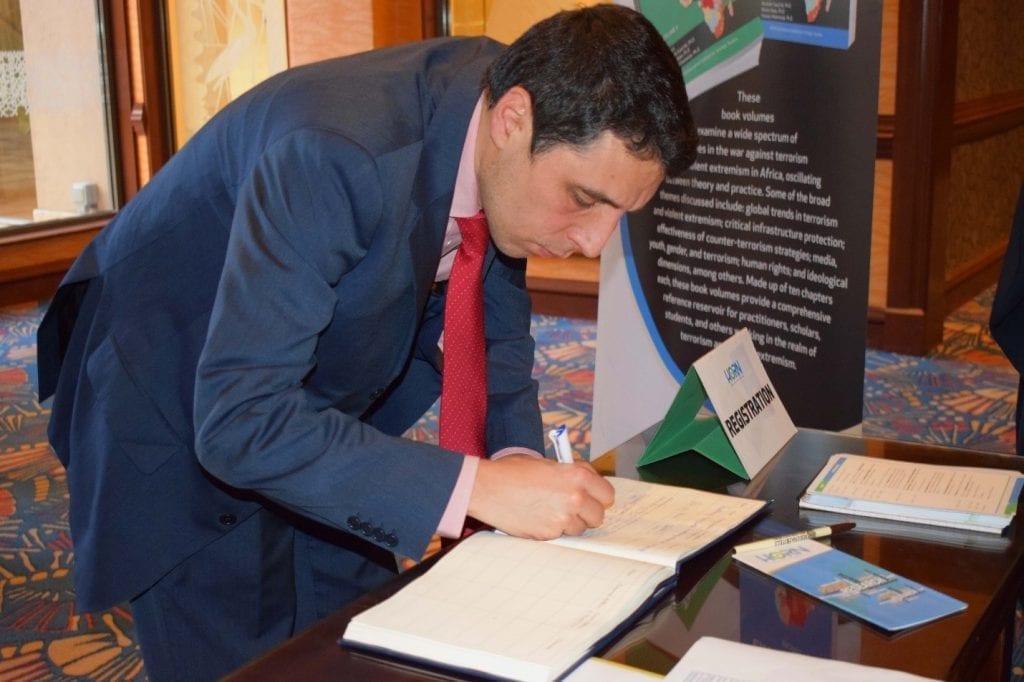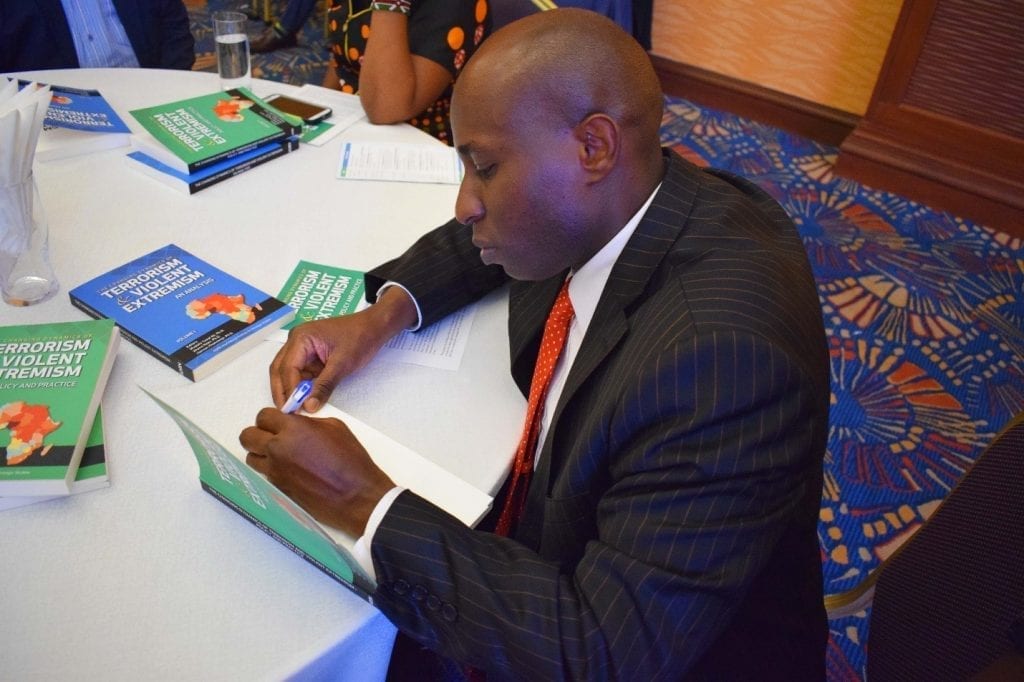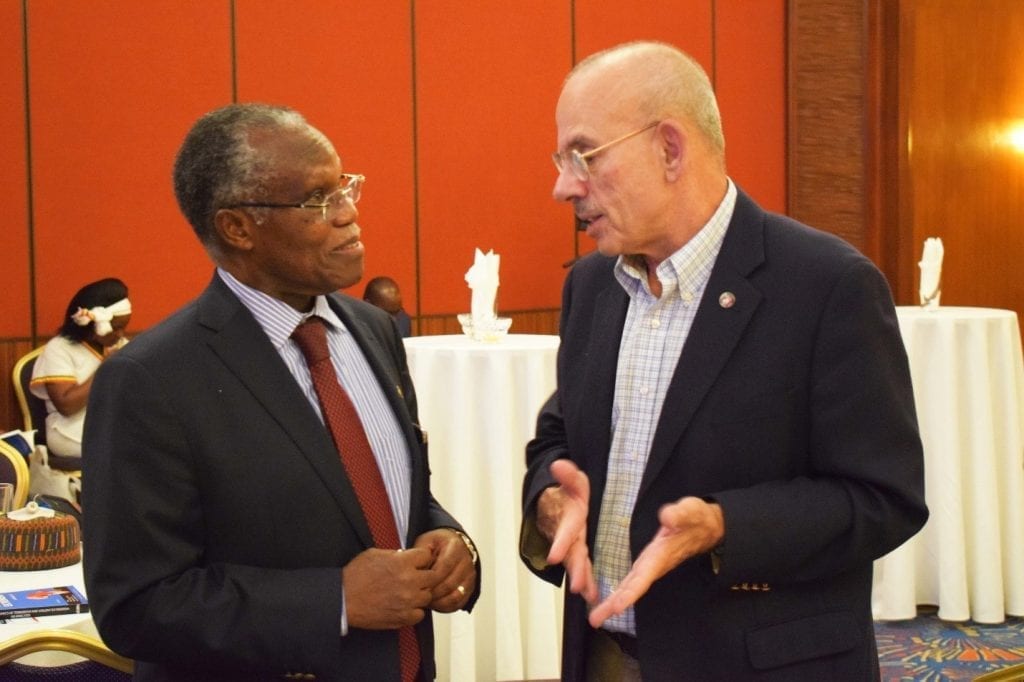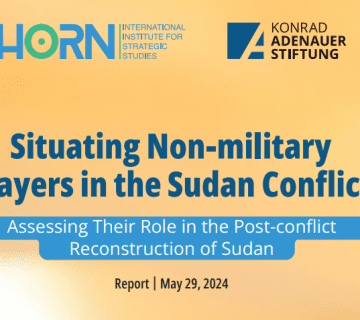The Changing Dynamics of Terrorism and Violent Extremism: An Analysis (Volume I) and The Changing Dynamics of Terrorism and Violent Extremism: Policy and Practice (Volume II)
Editors: Mustafa Yusuf Ali, Ph.D, Mumo Nzau, Ph.D., Hassan Khannenje, Ph.D.
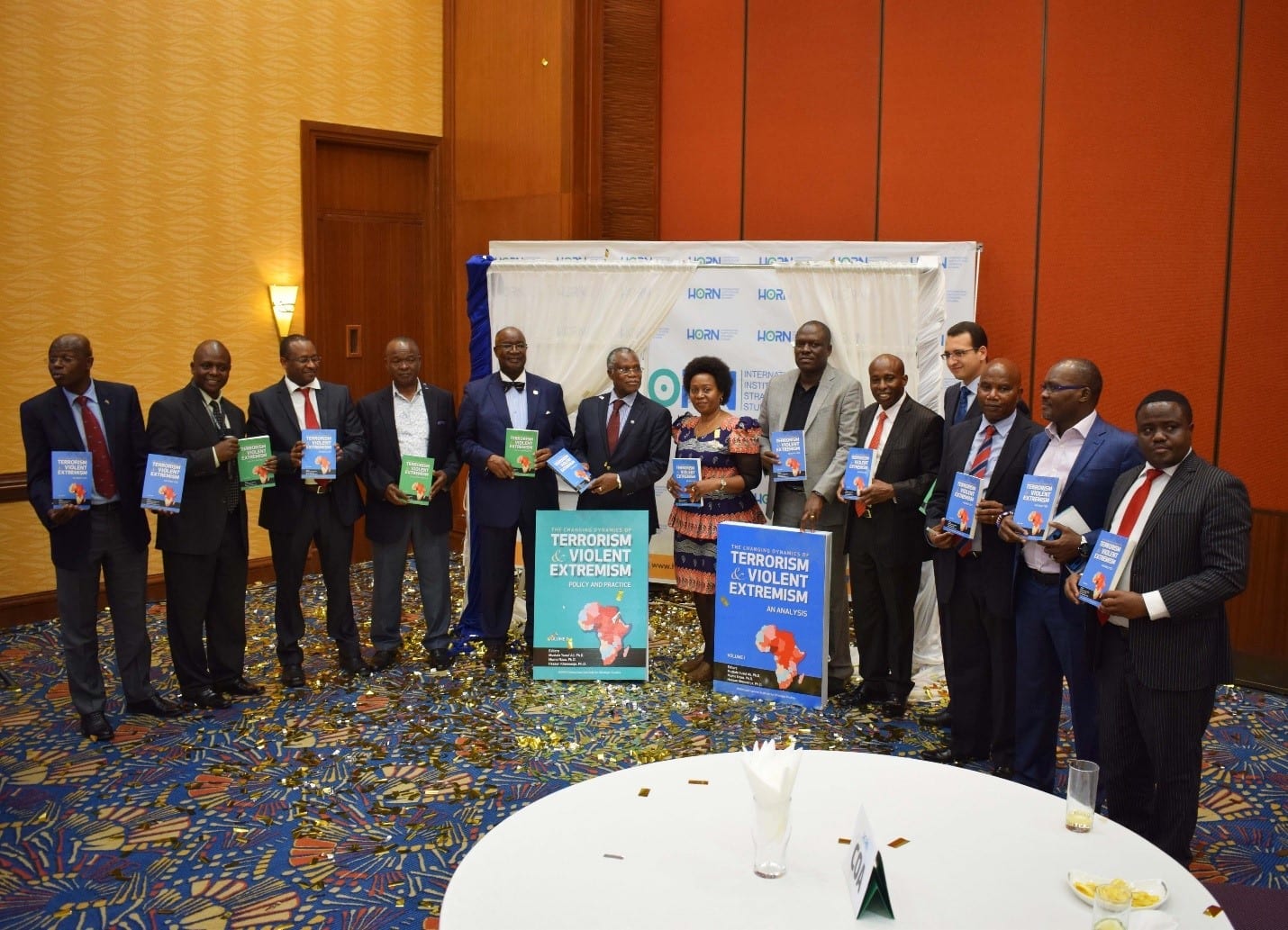
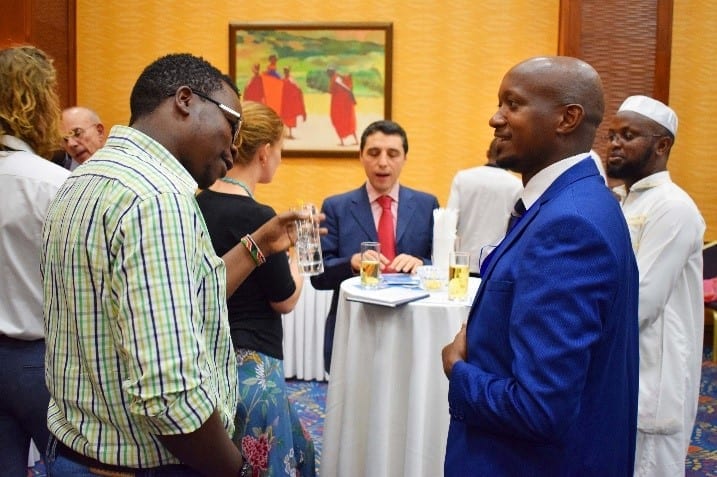
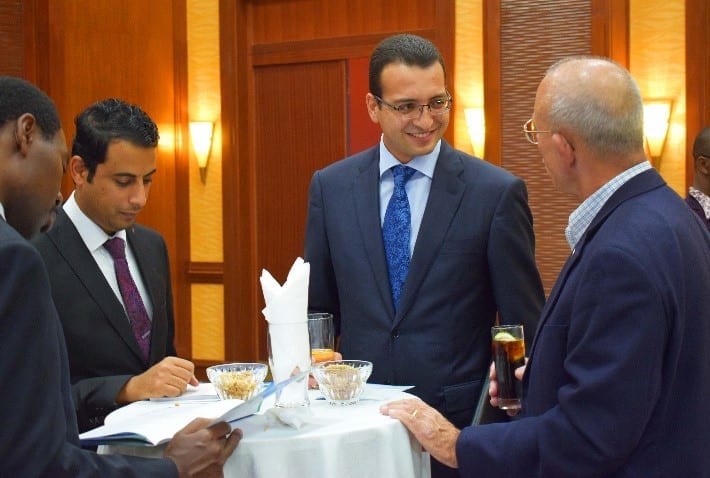
On November 23, 2018, the HORN Institute launched two book volumes: The Changing Dynamics of Terrorism and Violent Extremism: An Analysis (Volume I) and The Changing Dynamics of Terrorism and Violent Extremism: Policy and Practice (Volume II). Beginning at 5:00pm, the first innings began with the guests being welcomed by a cocktail. The Cocktail Event started by welcome remarks delivered by the HORN Institute director, Dr. Hassan Khannenje. He welcomed the guests which included ambassadors, professors, senior lecturers, senior government officials, and chapter contributors.

Dr. Hassan Khannenje, director, the HORN Institute, giving the welcome remarks
Dr. Khannenje then invited Sherif Mostafa ElSheikh, Third Secretary, Embassy of the Arab Republic of Egypt to give his remarks. ElSheikh commended members of the HORN Institute, specifically Dr. Mumo Nzau, Dr. Mustafa Y. Ali, and Dr. Hassan Khannenje, for a successful conference as well as publication of the books thereafter. He noted that terrorism is a challenge in Africa, drawing the nexus between it (terrorism) and other crimes on the continent. ElSheikh added that terrorism thrive on spaces outside government control and this should be addressed appropriately. He stated that Egypt is keen on promoting its PCVE and its religious institutions are playing a key role in dismantling terrorists’ ideological structure. He also said that President Abdel Fattah El Sisi chaired the AU Peace and Security Council meeting in Addis Ababa in January 2018 and its objective was to find a comprehensive approach to combating cross-border security threat in Africa.

Sherif Mostafa ElSheikh, Third Secretary, Embassy of the Arab Republic of Egypt giving his speech
Egypt has also been elected as chair of the African Union Assembly of Heads of State and Government for a one-year term in 2019. The decision was made during a closed meeting on AU institutional reform before the opening session of the 30th Africa Union (AU) summit convened. He finished by saying that Egypt looks forward to working with Kenya and other African states to address the common challenges facing Africa.
Sherif ElSheikh’s remarks were followed by Dr. Mustafa Y. Ali’s address, the HORN Institute Chairman. He read Inspector General Boinnet’s apologies for not coming to the launch as earlier planned. Dr. Mustafa started by quoting Jay Mallin, “When diplomats fail, soldiers take over and when soldiers fail, terrorists take over.” He acknowledged the presence of scholars at the launch, thanking them for walking with the HORN Institute up to the day of the launch. He noted that there has been a challenge of defining terrorism and emphasized the need for proper definition quoting Charles Kettering, “A problem well-defined is a problem half-solved.” He added that the ideology of terrorists remain the same regardless of the countries and regions they operate. He thanked the HORN Institute management for their efforts especially in ensuring that the two book volumes are published adding that the foundational principle of the Institute is to have African scholars addressing African problems.
Dr. Mustafa Y. Ali, the HORN Institute Chairman addressing the audience
Dr. Hassan Khannenje, also the moderator during the launch, then invited Rev. (Dr). Samuel Kobia, Senior Advisor, Cohesion, Peace and Conflict Resolution, the Executive Office of the President, and the member of the HORN Council of Advisors to give his speech. He stepped in on behalf of the Inspector General of Police who could not be able to attend due to exigencies (terrorism-related attack in Lamu). He stated that terrorism is undoubtedly the greatest threat of our time and the HORN’s endeavor in the publication of the two book volumes on terrorism and violent extremism is much appreciated and a step in the right direction. He noted that HORN brought together old friends during the international conference on terrorism in April and during the launch and discussed pertinent issues. Terrorism is dynamic as terrorists are able to change tact. Rev. Dr. Kobia emphasized the need to have a home-grown analysis of terrorism particularly in trying to understand the latest tactics used by terrorists. The HORN Institute has gifted people with two book volumes that could inform the fight against terrorism in Kenya and Africa.
Prof. Noah Midamba, the Vice Chancellor, Kenya College of Accountancy (KCA) was then invited to give his remarks. He started by posing three thought-provoking questions: “Can we build a perfect world? Is there a thing like a perfect world? Can we rout out terrorism?” He acknowledged that the conference was well-organized and attracted an informed audience. He challenged people to come up with a serious think tank like the HORN Institute to offer serious research and direction in policy and practice. He was impressed with the work done by the HORN Institute and invited other guests to purchase the book volumes.
H.E. Erastus Mwencha, E.G.H., M.B.S., Member of the HORN Council of Advisors, also took to the podium to give his remarks. He stated that mankind has always been confronted with challenges, and the transition from these challenges depend on how instruments, apparatus and capacities available are deployed. The new way of life has conditioned people to think they are in comfort. In tackling this challenge, the state can only do as much. What is confronting humanity is not common crime, it is ideological. Therefore, there is need for non-state actors such as the HORN Institute, churches organizations, and individuals to help in the fight against terrorism.
Rev. (Dr). Samuel Kobia was then joined by HORN Council of Advisors, select guests, ambassadors, and later on chapter contributors in unveiling the two book volumes. After unveiling, Dr. Mumo Nzau gave a vote of thanks and invited editors for a book signing session.


